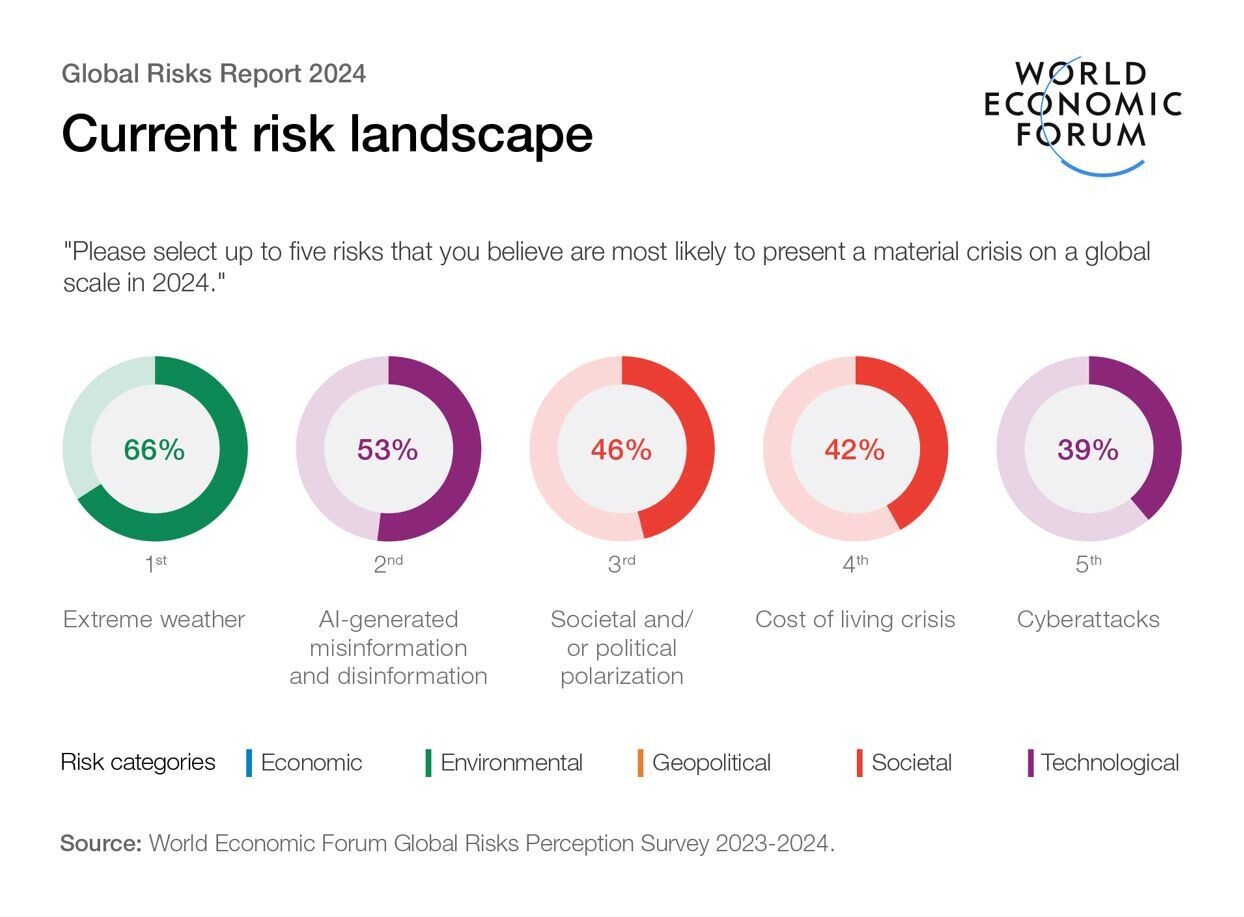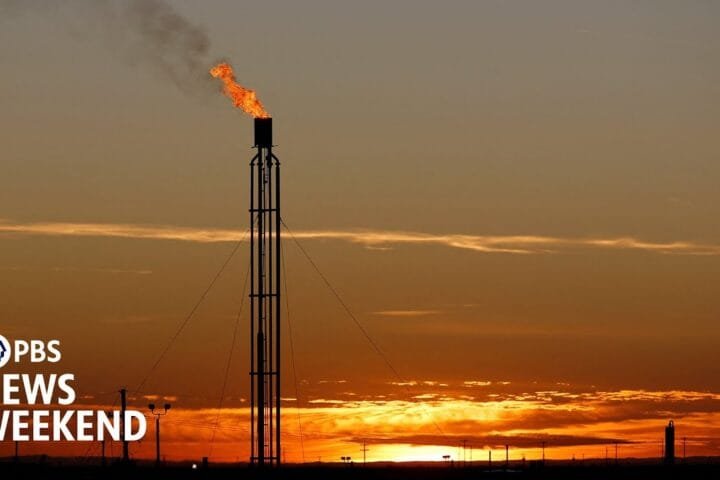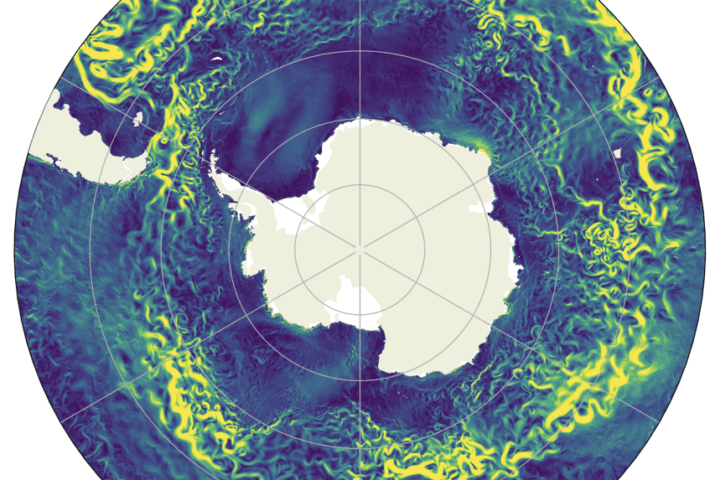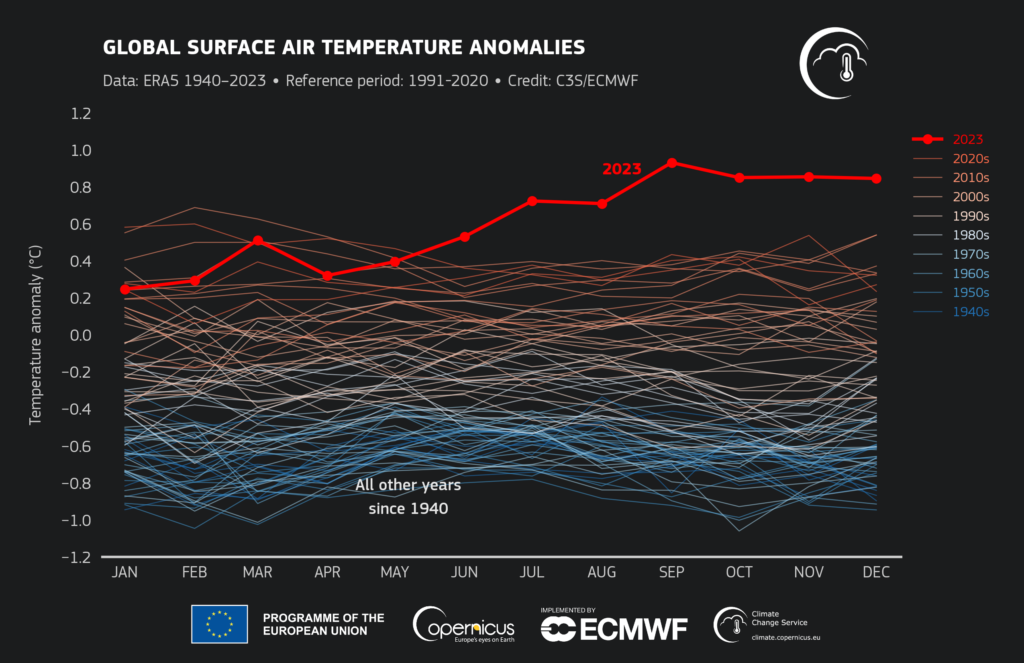- The World Economic Forum has published its Global Risks Report 2024, highlighting the need for dialogue in the face of growing global fractures.
- Among the top risks are cybercrime, the adverse outcomes of Artificial Intelligence and extreme weather events.
- While the challenge of each is great, so too is our capacity to respond, experts from the World Economic Forum explain.
Climate change, demographic changes, technology and geopolitics. These are the changing ‘structural forces’ that are making the world less stable, according to the World Economic Forum’s Global Risks Report 2024.
The fallout is already affecting billions of lives. Extreme weather, AI-generated mis- and disinformation, a cost-of-living crisis, cyberattacks and socio-political polarization are already upon us.
The impact and timeline of each risk area is different, and so is our chance of mitigating them; or preparing for them. And when combined, risks are heightened — conflict harms the planet directly and prevents much-needed collaborative action on climate change. Advances in AI can lead to cyber vulnerabilities. High interest rates expose small- and medium- sized enterprises and heavily indebted countries to debt distress.
But while 2024’s risks paint a grim picture, their worst outcomes are not inevitable.
The World Economic Forum spoke with Forum experts about some of the top risks this year: cyber insecurity, adverse outcomes of AI and extreme weather events, to get their insights into the solutions and potential for mitigation. Here’s what they had to say.
Extreme weather events
Risk ranking: 2nd on the 2-year horizon and 1st on the 10-year horizon
Gill Einhorn, Head, Innovation and Transformation, Centre for Nature and Climate, World Economic Forum
What is needed is a mindset that recognizes the full scale of the risk, while maintaining the optimism that we can and will respond in a way to avoid and mitigate the worst risks from occurring.
—Gill Einhorn, Head, Innovation and Transformation, Centre for Nature and Climate, World Economic Forum
Extreme weather events, critical change to Earth systems (a new entrant this year) and biodiversity loss and ecosystem collapse are the top three long-term risks featured in the Global Risks Report in 2024. They are interrelated and mutually reinforcing.
Abrupt and irreversible changes to Earth systems lead to more extreme weather events and risk collapses in ecosystems that are not well adapted to new climates.
The priority solution is faster emissions reduction and credible steps by all actors in our economic system to accelerate the speed and scale of a clean transition.
Reducing human emissions is the swiftest lever to postpone or avoid critical changes to Earth systems.
Once a climate tipping points has been reached, Earth’s natural systems reinforce changes and so delaying these for as long as possible will give our civilization time to develop appropriate adaptation and resilience strategies.
Here then lies the second priority for addressing systemic collapse from environmental risk: effectively adapting to coming changes. As sea levels rise, an ecosystem of interconnected solutions is needed to address threats to human life, landscapes and property.
And the solutions are already available: Innovations from African farmers, experienced in drought and flood management, will be crucial to quality of European crops. Grassroots innovation in managing the relocation of Arctic communities, who are the canaries in the coal mine of the climate disaster, can be harnessed to understand the policy safeguard and most effective approaches to handling forced migration from sea-level rise.
Much can be learned from nature’s forms, processes and ecosystems that have survived five previous mass extinctions to create more regenerative designs — known as biomimicry.
We must recognize the full scale of the risk, but maintain the optimism that we can and will respond in a way to avoid and mitigate the worst risks from occurring. We are responsible for the potential 6th Mass Extinction — but are also uniquely positioned to respond to avert its worst consequences.
[…]
Read the full post at Google News.






